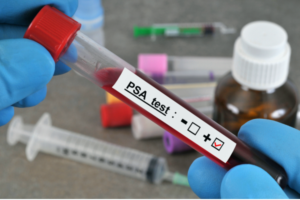Genetics play a significant role in determining an individual’s risk for developing various health conditions, including prostate diseases such as benign prostatic hyperplasia (BPH), prostatitis, and prostate cancer. Understanding the genetic factors that influence prostate health can help in early detection, personalized treatment, and potentially in developing preventive strategies. This article explores the role of genetics in prostate health, focusing on hereditary risk factors and genetic mutations associated with prostate diseases.
Understanding Genetics and Prostate Health
Genetics refers to the study of genes, which are units of heredity passed from parents to offspring. These genes contain DNA sequences that provide the instructions for building and maintaining our bodies. Variations or mutations in certain genes can increase the risk of developing specific diseases, including those affecting the prostate.
Hereditary Risk Factors
- Family History:
- Men with a family history of prostate cancer, especially first-degree relatives (father, brother), are at a higher risk of developing the disease. The risk increases with the number of affected relatives and their age at diagnosis.
- Ethnic Background:
- Certain ethnic groups, particularly African American men, have a higher incidence of prostate cancer compared to other ethnicities. This disparity is partly due to genetic factors.
Genetic Mutations Associated with Prostate Diseases
- BRCA1 and BRCA2:
- Description: Mutations in the BRCA1 and BRCA2 genes, which are also linked to breast and ovarian cancers, can increase the risk of prostate cancer.
- Impact: Men with BRCA2 mutations have a significantly higher risk and tend to develop more aggressive forms of prostate cancer.
- HOXB13:
- Description: The HOXB13 gene is involved in prostate development and function. A specific mutation (G84E) in this gene has been associated with an increased risk of early-onset prostate cancer.
- Impact: Men with this mutation have a higher likelihood of developing prostate cancer at a younger age.
- MSR1, RNASEL, and ELAC2:
- Description: These genes are involved in immune response, RNA processing, and DNA repair. Mutations in these genes have been linked to an increased risk of prostate cancer.
- Impact: Variants in these genes can predispose individuals to prostate cancer and affect the disease’s progression.
- Androgen Receptor (AR) Gene:
- Description: The AR gene plays a crucial role in the development and function of the prostate by mediating the effects of androgens (male hormones).
- Impact: Mutations or polymorphisms in the AR gene can influence prostate cancer risk and treatment outcomes, as androgens drive prostate cancer growth.
Implications for Screening and Treatment
- Genetic Testing:
- Purpose: Genetic testing can identify individuals at higher risk for prostate cancer based on their genetic makeup. Testing for mutations in genes like BRCA1, BRCA2, and HOXB13 can guide screening decisions.
- Usage: Men with a strong family history or those from high-risk ethnic groups may benefit from genetic counseling and testing.
- Personalized Medicine:
- Purpose: Understanding genetic variations allows for personalized treatment approaches. For instance, men with BRCA mutations might benefit from specific therapies like PARP inhibitors.
- Usage: Personalized medicine tailors prevention, monitoring, and treatment strategies to an individual’s genetic profile.
- Early Detection:
- Purpose: Genetic risk factors can inform more vigilant screening protocols, enabling early detection of prostate cancer when it is most treatable.
- Usage: High-risk individuals may undergo more frequent PSA testing or advanced imaging techniques.
Conclusion
Genetics play a crucial role in prostate health, influencing an individual’s risk for developing prostate diseases and impacting treatment responses. Understanding the genetic factors associated with prostate health can lead to improved screening, early detection, and personalized treatment strategies. Men, especially those with a family history of prostate diseases or belonging to high-risk groups, should consider genetic counseling and testing as part of their proactive health management.
References
- American Cancer Society. (2021). Genetics and Prostate Cancer. Retrieved from https://www.cancer.org/cancer/prostate-cancer/causes-risks-prevention/genetics.html
- Kote-Jarai, Z., et al. (2011). BRCA2 is a moderate penetrance gene contributing to young-onset prostate cancer: implications for genetic testing in prostate cancer patients. British Journal of Cancer, 105(8), 1230-1234
- Ewing, C. M., et al. (2012). Germline HOXB13 mutations and risk of prostate cancer. New England Journal of Medicine, 366(2), 141-149
- Al Olama, A. A., et al. (2014). A meta-analysis of 87,040 individuals identifies 23 new susceptibility loci for prostate cancer. Nature Genetics, 46(10), 1103-1109
- Carter, B. S., et al. (1993). Mendelian inheritance of familial prostate cancer. Proceedings of the National Academy of Sciences, 90(8), 3368-3372









